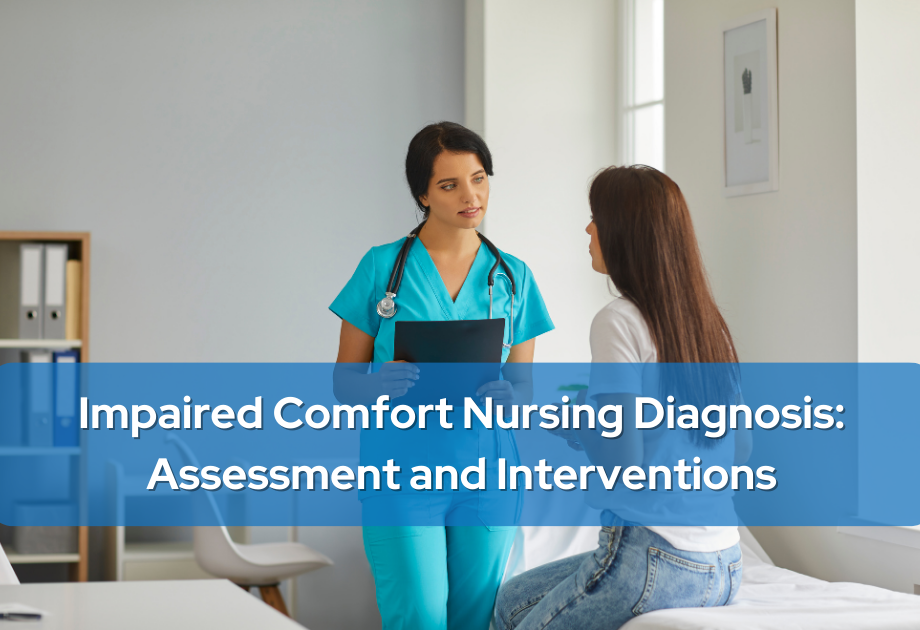

A feeling of discomfort is called impaired comfort., or emotional and social challenges that a patient encounters. The comfort levels of patients vary by age group and patient. The professional nurse should assess the cause of discomfort as thoroughly as possible to determine how best to intervene. Night and weekend nursing programs (degree programs) at community colleges help prospective students to learn more about impaired comfort nursing diagnosis plans.
Symptom control and acute pain & severe pain aren’t your only options for improving comfort. Patients must feel easily at home in their surroundings, feel emotionally linked, feel supported by their family, receive timely help & impaired comfort nursing diagnosis plan, participate in their LPN program or practical nursing program at a community college, and be engaged by committed staff. Patient comfort is directly related to patient satisfaction.
Subjective: (Reports from sufferers)
(Assessment by a nurse)
Examine the physical signs of stress through effective communication. Discomfort, vomiting, tiredness, and healthcare supplies like IV lines and catheters may cause discomfort.
Use a pain scale to monitor the chronic pain level (oral or not).
Nurses may see outward signs such as tears or restlessness. Still, a patient’s emotional state may be more difficult to understand.
In some cases, the nurse cannot control the situation, or the patient does not understand the reality of the situation.
Kindness is the simplest and most important thing a nurse can do for patients. Smile, speak in a friendly tone in daily living, and show you care. Patients must feel safe to feel at ease.
Antiemetics and antianxiety drugs are needed to improve healing and comfort.
Warm blankets provide comfort. Cool rags are useful for nausea and feeling sweating. Repositioning and using pillows can help to relieve internal soreness.
When ill and in the hospital, Patients may feel unprotected. Before doing anything, the nurse should explain it. Explain how to start an IV, take vital signs, or what a drug might feel like. When a patient is aware of what to expect, it can reduce fear and discomfort.
Suppose a patient is feeling anxious or overwhelmed. In that case, they may need to hear a soothing voice that reminds them of their safety. Teach breathing exercises and meditation.
Assist the individual needing to clean up their surroundings after asking for permission. Abandoned documents, stagnant meals, and chaotic desks can be intimidating. Dim the lights and dim the outside noise to reduce stimuli. Keep the door closed for privacy.
Uncleanliness can have a big impact on your comfort. If the patient cannot clean themselves, provide a bed bath that includes effective nursing care, skincare, and oral care. If patients can clean themselves, offer supplies like a toothbrush and comb.
l If the patient’s discomfort results from an emotional issue, a chaplain may be required to visit.
Support the patient’s close companions. To visit them to raise their confidence. (Unless this is the reason for their discomfort). Suggest making a telephone contact if they are not feeling well enough to receive visitors.
It may be necessary to distract a patient who is anxious or worried. Reading or drawing can be useful.
LPN programs near me provide you with the best skills, concepts of nursing practice and practical knowledge to make your career bright in the health care facilities.